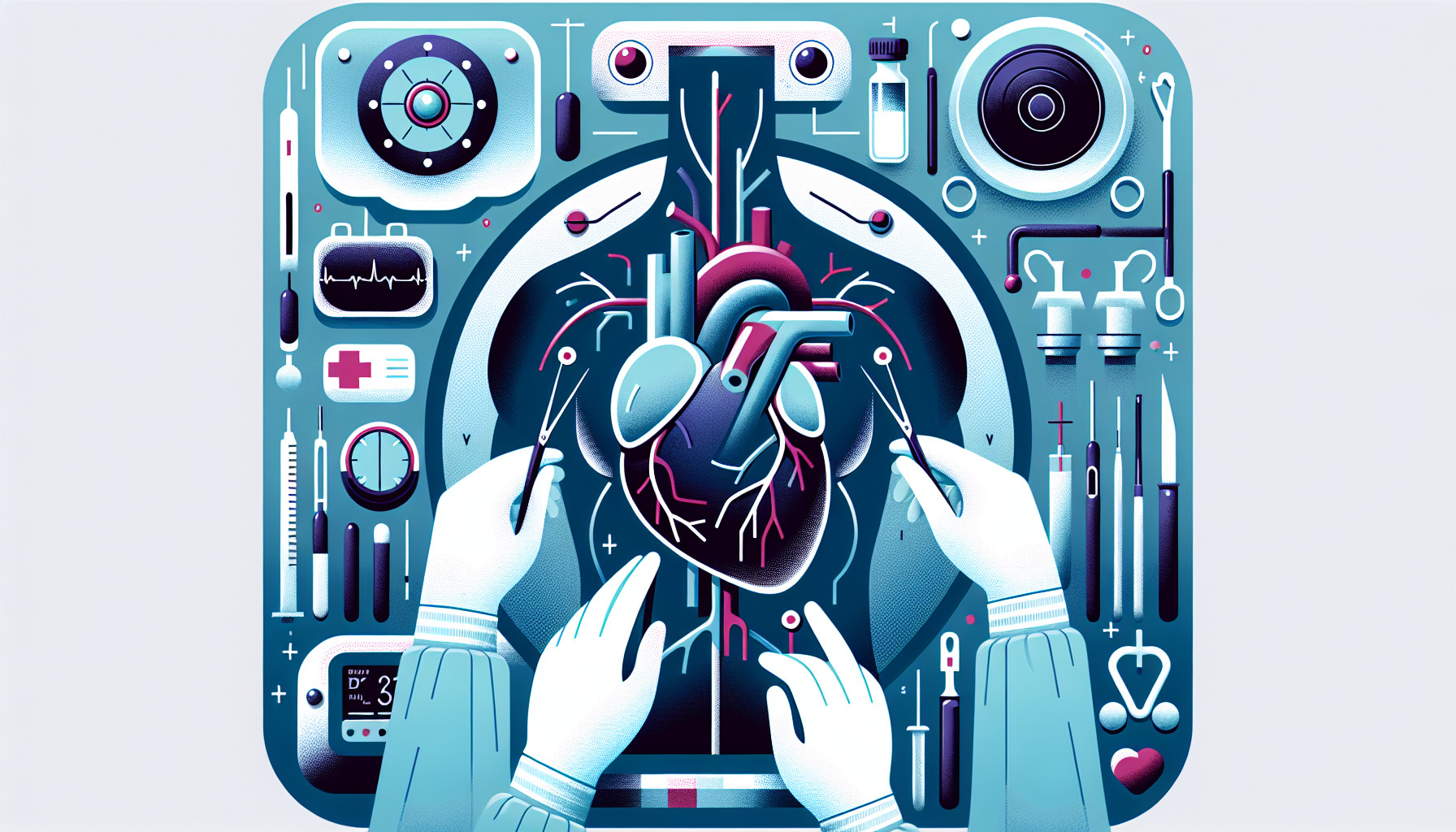Our Summary
This research paper looks at whether the timing of a heart bypass operation after a heart attack affects the patient’s outcome. Sometimes, doctors delay this surgery to avoid possible complications after the procedure. The researchers studied patients who had undergone heart bypass surgery after a heart attack at the University of Pittsburgh Medical Center between 2011 and 2017.
They divided the patients into two groups based on when they had their surgery - less than 24 hours after their heart attack and 24 hours or more after their heart attack. They found that there were more complications in the group that had the surgery less than 24 hours after their heart attack. However, when they adjusted for other factors, such as the patients’ age and other health conditions, they found that the timing of the surgery did not significantly affect the patients’ outcomes.
In simple terms, the study suggests that it might not matter whether a heart bypass operation is done immediately after a heart attack or is delayed, once other health factors are taken into account.
FAQs
- Does the timing of a heart bypass surgery after a heart attack affect the patient’s outcome?
- What factors were considered in the research when examining the effects of the timing of heart bypass surgery after a heart attack?
- Did the research find that immediate surgery post-heart attack led to more complications?
Doctor’s Tip
A helpful tip a doctor might tell a patient about coronary artery bypass is to follow their post-operative care instructions closely, including taking prescribed medications, attending follow-up appointments, and making necessary lifestyle changes such as improving diet and exercise habits. It’s also important to report any concerning symptoms or changes in health to your healthcare provider promptly.
Suitable For
Patients who are recommended for coronary artery bypass surgery typically have severe coronary artery disease, which is caused by a buildup of plaque in the arteries that supply blood to the heart. This can lead to chest pain (angina), shortness of breath, and in severe cases, a heart attack.
Some common reasons for recommending coronary artery bypass surgery include:
- Severe blockages in multiple coronary arteries that cannot be effectively treated with medication or less invasive procedures such as angioplasty and stenting.
- Left main coronary artery disease, where the main artery that supplies blood to the left side of the heart is significantly blocked.
- Severe chest pain or other symptoms that significantly impact the patient’s quality of life.
- Previous heart attacks or other heart-related complications that increase the risk of future cardiovascular events.
It is important for patients to discuss the risks and benefits of coronary artery bypass surgery with their healthcare provider to determine if it is the best treatment option for their specific condition.
Timeline
Before the coronary artery bypass surgery, the patient may experience symptoms such as chest pain, shortness of breath, and fatigue. They will undergo diagnostic tests such as an electrocardiogram (ECG), echocardiogram, and possibly a coronary angiogram to determine the extent of blockages in their coronary arteries.
After the surgery, the patient will typically spend a few days in the hospital recovering. They will be closely monitored for any complications such as bleeding, infection, or arrhythmias. Physical therapy may be started to help the patient regain strength and mobility. The patient will also receive instructions on how to care for their incision site, manage pain, and make lifestyle changes to improve their heart health.
In the weeks and months following the surgery, the patient will attend follow-up appointments with their cardiologist to monitor their progress and make any necessary adjustments to their medications or treatment plan. Cardiac rehabilitation may be recommended to help the patient recover and improve their overall cardiovascular health. With proper care and lifestyle changes, the patient can expect to see improvements in their symptoms and quality of life after undergoing coronary artery bypass surgery.
What to Ask Your Doctor
Some questions a patient should ask their doctor about coronary artery bypass include:
- What is the recommended timing for a heart bypass operation after a heart attack in my specific case?
- What are the potential risks and complications associated with undergoing a heart bypass surgery shortly after a heart attack?
- Are there any benefits to delaying the heart bypass surgery after a heart attack in terms of long-term outcomes?
- How will my other health conditions and factors be taken into consideration when determining the timing of the heart bypass surgery?
- What are the success rates and expected outcomes for patients who undergo heart bypass surgery after a heart attack?
- Are there any alternative treatment options to consider before proceeding with a heart bypass surgery?
- How will the timing of the heart bypass surgery impact my recovery process and overall quality of life?
- What post-operative care and follow-up procedures should I expect after undergoing a heart bypass surgery following a heart attack?
- How can I best prepare myself physically and mentally for the heart bypass surgery and recovery process?
- Are there any lifestyle changes or medications that I should consider before and after undergoing a heart bypass surgery?
Reference
Authors: Bianco V, Kilic A, Gleason TG, Aranda-Michel E, Wang Y, Navid F, Sultan I. Journal: J Thorac Cardiovasc Surg. 2021 Jun;161(6):2056-2064.e4. doi: 10.1016/j.jtcvs.2019.11.061. Epub 2019 Dec 9. PMID: 31952832
